
Bulletin of the Peabody Museum of Natural History
metrics 2024
Exploring the Interconnectedness of Life
Introduction
The Bulletin of the Peabody Museum of Natural History, published by the Peabody Museum of Natural History at Yale University, stands as a pivotal journal in the fields of Animal Science and Zoology, Ecology, Evolution, Behavior and Systematics, and Plant Science. With an impressive impact factor and categorization in the top quartiles of these disciplines, the journal is recognized for its rigorous peer-reviewed research that contributes significantly to our understanding of biodiversity and ecological dynamics. Covering studies from 2010 to 2024, this journal plays a vital role in disseminating essential findings for scholars, professionals, and students alike. While it currently does not offer open access, its research is crucial for advancing scientific knowledge and fostering collaboration across various biological sciences. With its esteemed reputation and comprehensive scope, the Bulletin of the Peabody Museum of Natural History continues to be an important resource for those engaged in the study of natural history.
Metrics 2024
 0.60
0.60 2.20
2.20 1.70
1.70 23
23Metrics History
Rank 2024
Scopus
IF (Web Of Science)
JCI (Web Of Science)
Quartile History
Similar Journals

Palaeoworld
Decoding the Ecological Narratives of Our Planet's PastPalaeoworld is a leading peer-reviewed journal published by ELSEVIER, focusing on the dynamic and interdisciplinary fields of paleontology, ecology, and stratigraphy. Established in 2006, the journal aims to facilitate the dissemination of innovative research and significant discoveries that enhance our understanding of past life on Earth. With an impressive impact factor and categorized in the second quartile (Q2) for Ecology, Evolution, Behavior and Systematics, Paleontology, and Stratigraphy in 2023, Palaeoworld stands out in its commitment to high-quality scholarship. The journal is indexed in Scopus, ranking #23 in Paleontology and #14 in Stratigraphy, placing it within the top 20% of publications in these categories. As a valuable resource for researchers, professionals, and students alike, it provides unrestricted access to cutting-edge findings, detailed methodologies, and critical assessments of paleo-environmental data. This journal is not only a repository of knowledge but also a platform for advancing discussions that bridge past ecological patterns with contemporary issues.

Arthropod Systematics & Phylogeny
Illuminating the path of arthropod evolution and diversity.Arthropod Systematics & Phylogeny is a pivotal journal published by the SENCKENBERG NATURHISTORISCHE SAMMLUNGEN DRESDEN, MUSEUM TIERKUNDE in Germany, dedicated to advancing the understanding of arthropod systematics, phylogenetics, and evolutionary biology. With an ISSN of 1863-7221 and an E-ISSN of 1864-8312, this journal has established itself as a reputable source for high-quality research, evident by its ranking in the Q1 category for Insect Science and Q2 in Genetics. Covering a spectrum of subjects within the realms of agricultural and biological sciences, it caters to a diverse audience of researchers, professionals, and students eager to explore the intricate relationships and evolutionary histories of diverse arthropod taxa. The journal has been consistently publishing impactful studies since its inception in 2009, with ongoing contributions expected to bolster its presence in the academic community through 2024 and beyond. Although it currently does not offer open access options, its rich content serves as a valuable resource for those passionate about entomology and genetics, fostering collaboration and innovation in an important area of biological research.

NOVITATES CARIBAEA
Connecting Researchers to the Heart of Caribbean EcologyNOVITATES CARIBAEA is a distinguished academic journal dedicated to the exploration of Caribbean natural history, fostering a deep understanding of the region's biodiversity and ecological significance. Published by the MUSEO NACIONAL HISTORIA NATURAL-SANTO DOMINGO, this open-access journal has been a platform for scholarly communication since 2009, aiming to provide unrestricted access to high-quality research outputs. With its commitment to promoting research in Caribbean ecosystems, NOVITATES CARIBAEA plays a crucial role in the academic community, facilitating knowledge exchange among researchers, professionals, and students. The journal welcomes submissions exploring various aspects of natural history, including taxonomy, conservation biology, and ecological studies, making it an essential resource for those dedicated to understanding and preserving the unique environments of the Caribbean.
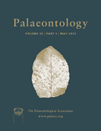
PALAEONTOLOGY
Exploring Fossilized Legacies for a Deeper TomorrowPALAEONTOLOGY, published by Wiley in the United Kingdom, is a leading journal dedicated to advancing the knowledge of Earth's biological history through the study of fossilized remains. With an ISSN of 0031-0239 and an E-ISSN of 1475-4983, this journal has established itself as a premier resource in the field, boasting a remarkable Q1 ranking in both Paleontology and Ecology, Evolution, Behavior and Systematics according to the 2023 category quartiles. Its commitment to high-quality research is evidenced by its Scopus rankings, placing it in the 93rd percentile among paleontology journals. While PALAEONTOLOGY is not currently open access, its extensive archival reach from 1979 to 2024 ensures that vital research findings remain accessible to the academic community. This journal not only acts as a platform for cutting-edge research but also fosters collaboration among scientists, students, and professionals interested in the implications of paleontological studies on contemporary ecological and evolutionary issues.
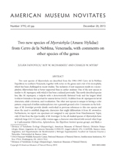
AMERICAN MUSEUM NOVITATES
Elevating Understanding: Insights from the American Museum of Natural History.AMERICAN MUSEUM NOVITATES, published by the American Museum of Natural History, stands as a prestigious platform for scholarly dissemination in the fields of Archeology, History, and Museology. With an impressive impact factor evidenced by its Q1 rankings in 2023 across these categories, this journal is a vital resource for researchers and professionals seeking to advance knowledge and understanding within these disciplines. The journal's commitment to quality research is reflected in its high rankings within Scopus, where it boasts a remarkable rank of #37 in History and #4 in Museology, showcasing its relevance and influence in the academic community. While open access options are not currently available, readers can access compelling research articles that span from its inception in 2005 to the present date, making it an essential reference for those interested in the historical and cultural implications of natural history and museum studies. Located in the heart of New York, this journal fosters a collaboration between scientists and scholars, enriching both academic and public understanding of our shared heritage.
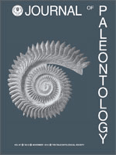
JOURNAL OF PALEONTOLOGY
Bridging Past and Present Through PaleontologyJOURNAL OF PALEONTOLOGY, published by Cambridge University Press, is a leading scholarly journal dedicated to the field of paleontology, featuring a broad scope that covers fossil studies, evolutionary biology, and earth history. With an ISSN of 0022-3360 and an E-ISSN of 1937-2337, this esteemed journal serves as an essential platform for researchers, professionals, and students to disseminate cutting-edge research findings and insights in paleontological science. The journal holds a significant position within its category, ranking Q2 in the 2023 quartiles and achieving a Scopus rank of #51 out of 113 in Earth and Planetary Sciences – Paleontology, placing it in the 55th percentile of its field. Although it does not currently offer open access options, JOURNAL OF PALEONTOLOGY has been a critical contributor to advancing knowledge from its inception in 1979 through to 2024. Its dedication to rigorous research ensures it remains an indispensable resource for those vested in the understanding of ancient life and ecosystems.

BULLETIN OF GEOSCIENCES
Advancing Earth Sciences through Innovative ResearchBULLETIN OF GEOSCIENCES, published by the prestigious Czech Geological Survey, stands as a pivotal resource in the fields of Earth and Planetary Sciences and Environmental Science. Since its inception in 2003, the journal has been committed to advancing knowledge through high-quality research, currently holding a commendable Q2 ranking in both disciplines. With its focus on diverse and innovative topics, BULLETIN OF GEOSCIENCES provides an essential platform for researchers, professionals, and students aiming to disseminate and access impactful studies. The journal is indexed in Scopus, ranking #78/195 in General Earth and Planetary Sciences and #110/233 in General Environmental Science, reflecting its significant contribution to academia. Publishing from Prague, Czech Republic, this journal invites contributions that illuminate the interactions between geological processes and environmental phenomena, ensuring an inclusive and accessible approach to crucial global issues.
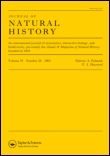
JOURNAL OF NATURAL HISTORY
Advancing Knowledge in Ecology and EvolutionThe Journal of Natural History, established in 1967, is a pivotal academic resource published by Taylor & Francis Ltd. With an ISSN of 0022-2933 and an E-ISSN of 1464-5262, this journal is a cornerstone in the field of Ecology, Evolution, Behavior, and Systematics. Ranked Q2 in its category as of 2023, it stands out with a Scopus ranking of #477 out of 721, reflecting its influence and relevance, particularly in the agricultural and biological sciences. The Journal of Natural History aims to disseminate high-quality, peer-reviewed research that contributes to our understanding of biodiversity and ecosystem dynamics. Although it does not operate under an open-access model, this journal remains accessible through various academic libraries and platforms, making it an essential resource for researchers, professionals, and students striving to advance their knowledge in natural history. With its long-standing commitment to excellence, the journal plays a crucial role in shaping discourse and fostering innovation in ecological research.

COLEOPTERISTS BULLETIN
Unveiling the Secrets of Beetle DiversityCOLEOPTERISTS BULLETIN is a pivotal journal in the field of insect science, particularly focusing on the fascinating world of beetles. Published by the COLEOPTERISTS SOC, this journal disseminates high-quality research, illustrations, and literature reviews since its inception, with contributions spanning from 1988 to 2024. Though classified in Q3 of the insect science category as per the 2023 quartiles, it holds significant value for researchers, professionals, and students alike, offering insights into agricultural and biological sciences with an emphasis on coleopteran diversity and ecology. Based in the United States at the University of Georgia, this journal serves as a hub for scientific dialogue and advancements in the field. While it currently does not offer open access, its rigorously peer-reviewed articles ensure that cutting-edge research reaches a dedicated audience, promoting a deeper understanding of beetles' ecological roles and contributions to biodiversity.
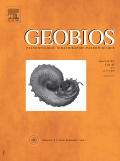
GEOBIOS
Unveiling the Secrets of Planetary ScienceGEOBIOS is a prominent academic journal published by Elsevier France-Editions Scientifiques Medicales Elsevier, specializing in the fields of Paleontology, Space and Planetary Science, and Stratigraphy. With a rich publication history dating back to 1966, the journal aims to foster scholarly communication and dissemination of significant research findings among professionals and researchers in earth sciences. Recognized for its impact within the scientific community, GEOBIOS holds a respectable Q2 ranking in several categories, positioning it within the top tiers of scientific journals. Despite its traditional publication format, the journal provides a platform for groundbreaking studies that influence our understanding of both the geological past and future planetary developments. The journal's consistent ranking, including Rank #36 in Paleontology and Rank #59 in Space and Planetary Science, underscores its relevance and significance in its field. GEOBIOS serves as an essential resource for those engaged in the exploration of earth's history and its extraterrestrial counterparts, making it invaluable to researchers, students, and professionals alike.